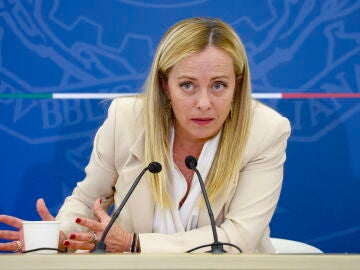
The Twenty-Seven have certified that there is a sufficient majority to establish its position on the crisis mechanism key in the reform of the asylum and migration policy of the European Union, thus overcoming the last obstacle open so that governments and the European Parliament could resume negotiations in order to close the Migration Pact before the end of the European legislature in June of the next year.
The adoption of the mandate on the mechanism took place at a meeting at the level of ambassadors in Brussels, after Germany and Italy have resolved the fight which distanced them from the situation of NGOs that carry out rescue tasks in the Mediterranean.
The Interior Ministers already achieved last week an “unquestionable majority”in the words of the Spanish minister Fernando Grande-Marlaska, which allowed the red lines to be established in the negotiation with Parliament after Berlin withdrew its reservations, but it was decided to give more time to Italy to explain the agreement within its tripartite government and thus also be able to count on the support of this country, one of the most affected by migratory pressure.
The new mechanism reserved for exceptional situations in which governments will be forced to support one or more Member States that are overwhelmed by migratory pressure on their borders, effectively dilutes mandatory quotas of relocation because it offers ‘a la carte solidarity’ with different forms of financial compensation to avoid this distribution of the burden of reception.
The renunciation of the entry countries to a system of mandatory quotas, however, still not convincing Poland and Hungarywho flatly reject any responsibility for the migration management of other EU partners and remain against the agreement reached.
Source: Lasexta
Ricardo is a renowned author and journalist, known for his exceptional writing on top-news stories. He currently works as a writer at the 247 News Agency, where he is known for his ability to deliver breaking news and insightful analysis on the most pressing issues of the day.












